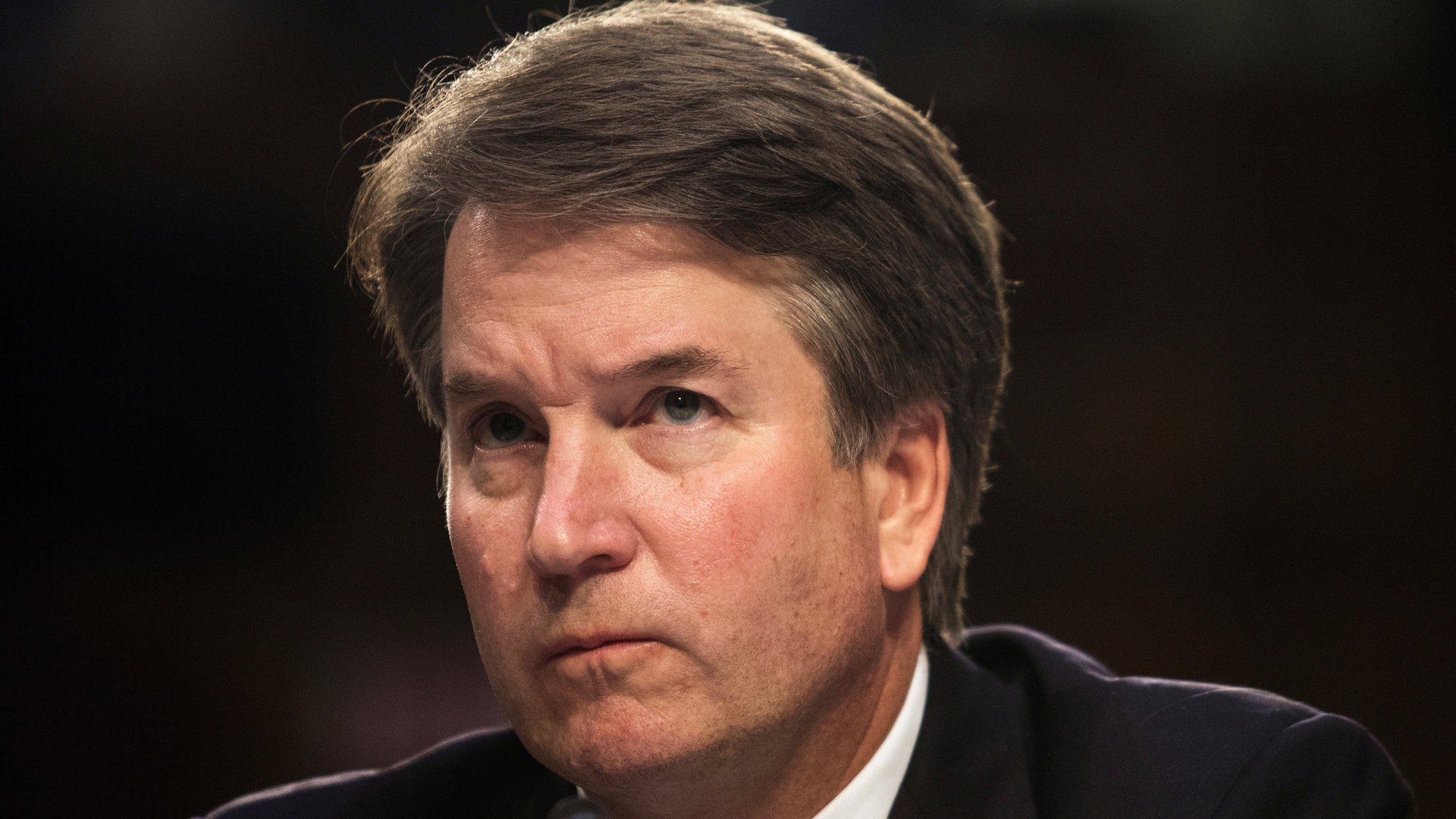The flawed logic of that letter defending Brett Kavanaugh against sexual assault claims
Donald Trump’s US Supreme Court nominee Brett Kavanaugh has been accused of past sexual assault and has denied the accusation—not an entirely surprising turn of events in the age of #MeToo. But in a strange twist, 65 women on either side of the political divide (and Kavanaugh is a politically divisive figure) are coming to his defense.


Donald Trump’s US Supreme Court nominee Brett Kavanaugh has been accused of past sexual assault and has denied the accusation—not an entirely surprising turn of events in the age of #MeToo. But in a strange twist, 65 women on either side of the political divide (and Kavanaugh is a politically divisive figure) are coming to his defense.
The group penned a letter (pdf) on Sept. 14 to the Senate Judiciary Committee, which is in charge of Kavanaugh’s confirmation process, saying he’s always been a perfect gentleman in their experience. “We are women who have known Brett Kavanaugh for more than 35 years and knew him while he attended high school between 1979 and 1983. For the entire time we have known Brett Kavanaugh, he has behaved honorably and treated women with respect,” they write.
This letter, however, is not evidence that he didn’t do what one woman says he did. In fact, it’s a frankly strange defense to put forward now. The false logic of their argument is best expressed by writer Emily Nunn on Twitter, who joked, “Ted Bundy was innocent. I know this because he never killed me.”
The accuser wants to remain anonymous and has decided not to come forward after efforts to reach congresspeople yielded little response in recent months, the New Yorker reports.
After Kavanaugh’s nomination to the high court, the accuser contacted her congresswoman Anne Eshoo detailing the incident: Allegedly, when Kavanaugh was in high school in the early 1980s, he held her down at a party, covered her mouth to mute her protests, and attempted to force himself on her. A friend of his was in the room with them and turned up the music to cover up any noise. She says she’s still haunted by the incident and has sought psychological treatment.
She also sent a letter to senator Dianne Feinstein on the Senate Judiciary Committee in July. Feinstein, in turn, forwarded the letter to the FBI just this week. The senator did not share the accusations with her Democratic colleagues on the committee, reportedly because the incident took place 30 years ago and she didn’t want to focus on personal matters while there are legal issues to debate ahead of Kavanaugh’s confirmation.
On Sept. 13, Feinstein issued this cryptic statement: ”I have received information from an individual concerning the nomination of Brett Kavanaugh to the Supreme Court. That individual strongly requested confidentiality, declined to come forward or press the matter further, and I have honored that decision. I have, however, referred the matter to federal investigative authorities.”
The FBI put the information in the nominee’s background file on Sept. 12 “as per the standard process,” according to an agency spokesperson.
In an email to press, White House spokesperson Kerri Kupec called the accusation an “11th hour attempt to delay [Kavanaugh’s] confirmation.” The nominee rejects the accusation, saying, “I categorically and unequivocally deny this allegation. I did not do this back in high school or at any time.”
Notably, the letter in Kavanaugh’s defense sidesteps the accusation altogether while attempting to bolster his reputation. It basically argues that he was a popular guy in high school, which does not actually bar the possibility of wrongdoing. The women write:
Brett attended Georgetown Prep, an all-boys high school in Rockville, Maryland. He was an outstanding student and athlete with a wide circle of friends. Almost all of us attended all-girls high schools in the area. We knew Brett well through social events, sports, church, and various other activities. Many of us have remained close friends with him and his family over the years. Through the more than 35 years we have known him, Brett has stood out for his friendship, character, and integrity. In particular, he has always treated women with decency and respect. That was true when he was in high school, and it has remained true to this day.
Feinstein has taken some heat for failing to share the accuser’s letter with colleagues. Unnamed sources who worked for other members of the Judiciary Committee told the New Yorker that they respect the need to protect the woman’s privacy, but that it doesn’t explain Feinstein’s resistance to questions about the allegation. “This is all very weird,” one of the congressional sources said.
If the woman is telling the truth and Kavanaugh did attempt to muffle her protests, both the letter and the lack of responsiveness by public servants must seem like an ugly echo of what happened in the past.